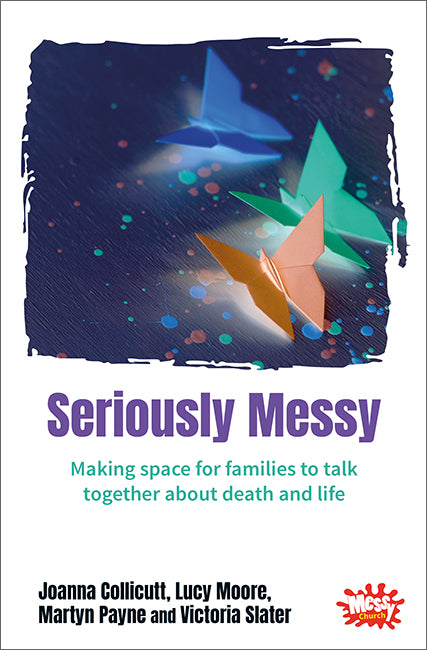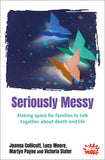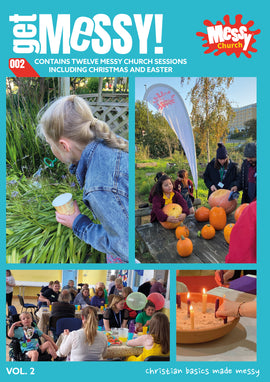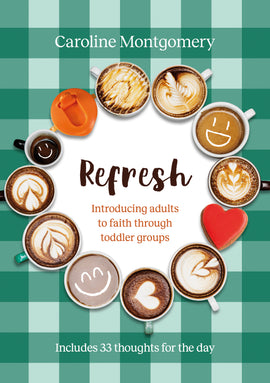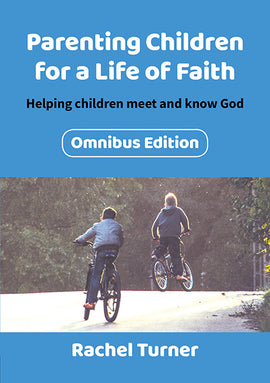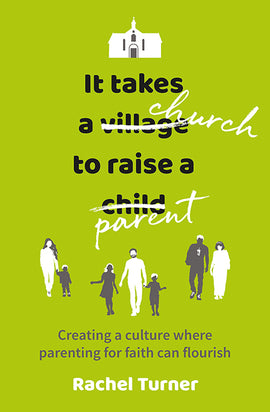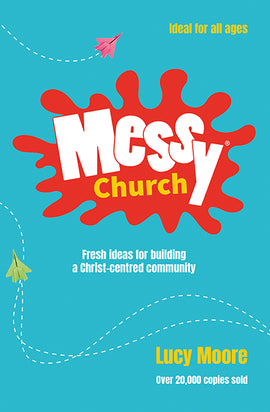Seriously Messy: Making space for families to talk together about death and life
Supports church communities in talking about death and loss
When families experience bereavement and loss, it can be hard for the wider church community to know how best to support them. In this book, four experienced authors and practitioners offer inter-generational approaches for engaging with questions of death and life in a safe and supportive setting. The material guides church communities who are dealing with the death of loved ones and other situations of loss in talking together as a church family, in applying the Christian message of the resurrection in challenging situations, and in listening to each other and developing their own insights.
| Title | Seriously Messy: Making space for families to talk together about death and life |
| Authors | Joanna Collicutt Lucy Moore, Martyn Payne, Victoria Slater |
| ISBN | |
| Description | When families experience bereavement and loss, it can be hard for the wider church community to know how best to support them. In this book, four experienced authors and practitioners offer inter-generational approaches for engaging with questions of death and life in a safe and supportive setting. The material guides church communities who are dealing with the death of loved ones and other situations of loss in talking together as a church family, in applying the Christian message of the resurrection in challenging situations, and in listening to each other and developing their own insights. The opening chapters offer an easy-to-read overview of issues of death and dying, and why this is such an important topic for churches. Part 2 consists of a series of five short theological reflections, exploring traditional images and the language that Christians have always used when talking about death. The five Messy Church sessions in Part 3 continue these themes, each offering material for a two-hour all-age Messy Church service followed by a meal together.
|
| Details |
|
When families experience bereavement and loss, it can be hard for the wider church community to know how best to support them. In this book, four experienced authors and practitioners offer inter-generational approaches for engaging with questions of death and life in a safe and supportive setting. The material guides church communities who are dealing with the death of loved ones and other situations of loss in talking together as a church family, in applying the Christian message of the resurrection in challenging situations, and in listening to each other and developing their own insights.
The opening chapters offer an easy-to-read overview of issues of death and dying, and why this is such an important topic for churches. Part 2 consists of a series of five short theological reflections, exploring traditional images and the language that Christians have always used when talking about death. The five Messy Church sessions in Part 3 continue these themes, each offering material for a two-hour all-age Messy Church service followed by a meal together.
Revd Canon Dr Joanna Collicutt is Karl Jaspers Lecturer in Psychology and Spirituality at Ripon College Cuddesdon. She is also an associate minister in an Oxfordshire parish. Her other books include The Psychology of Christian Character Formation (SCM, 2015) and Thinking of You: A resource for the spiritual care of people with dementia (BRF, 2017).
Transforming Ministry Spring 2020. Review by Rona Orme
Although written for use in Messy Churches, this book is a gift to the whole church. The first half should be essential reading for everyone in ministry. Whether we are involved in children’s ministry or not, we all meet parents and grandparents and teachers who want advice on how to talk to children about death. Death cafés are becoming popular with older folk, but children need to have these conversations too. Most children have experience of death, so they need the vocabulary to reflect on it. A solid theological base underpins this thoughtful book, so it contains hope and wise advice. We are encouraged to face the difficult conversations rather than to avoid an upsetting subject. There are many helpful suggestions for this. The second half includes five full Messy Church sessions. These contain a wealth of ideas for discussing issues of decay, loss, remembering, hope and safe spaces, which could be used in many different settings. This book is a challenge to include discussion of death in our exploration of the fullness of life.
Reviewed by Rona Orme
Church Times 25.10.19. Review by Martine Oborne
When my son was a teenager, he was in hospital after an accident. A friend sent him a Get Well card, and I opened it for him and read out the message: ‘Get messy soon!’ I asked my son what this meant. Was it anything to do with making dens, water fights, or craft activities? ‘No,’ he replied. ‘It means “Let’s go out and get drunk.”’
So, when I saw the title of this book, I thought, at first, that it was about teenage drinking. But it’s not that kind of messy.
Messy Church, an initiative that has been going for about 15 years in the UK, seeks to provide a church experience for families who have not found other forms of church engaging. It usually involves paint, glue, glitter, and other messy substances, as craft activities are set up to explore a particular Christian theme or message; and this book is Seriously Messy because it addresses a serious subject: death. Is Messy Church a format that can be used to do that?
The book is divided into three parts. The first gives an overview of the topic and touches on some of the reasons that we find it so challenging to think and talk about death. Part 2 comprises five short theological reflections on how Christians talk about death: remembering; saying goodbye and hello; sleeping tight; being loved and finding safe spaces. Part 3 sets out five Messy Church sessions with suggestions for activities and ‘celebrations’ that could be used as church services.
The first two parts I found helpful, and the whole concept of encouraging intergenerational conversation about death seems a good thing. I struggled, however, with Part 3: some of the activities struck me as too much ‘fun’ for the serious nature of the subject. I could not imagine doing them with someone still in the very raw and early stages of a bereavement.
None the less, I recommend the book. It sets out the theological framework that underpins our
Christian hope — that death is not the end, that we do not go into that last goodnight alone, that love triumphs over death. And it encourages us to find ways both to hear people’s doubts and fears and also to bring hope and comfort.
Reviewed by the Revd Martine Oborne, Vicar of St Michael’s, Chiswick, in London.
Methodist Recorder 18.10.19. Review by Karen Murphy
The Messy Church initiative has been something of a revolution over the past few years with its focus on providing an appropriate and useful space for [people of all ages] to explore spirituality.
Seriously Messy is a fascinating book, developing the theme of spiritual exploration through practical and creative ideas that should be warmly welcomed by faith communities.
Talking about death and our mortality is unfamiliar territory for our society. We are inclined to ignore the inevitable and pretend it ‘doesn’t mean us’. My experience in hospice chaplaincy is that older people, particularly, become anxious and fearful as the prospect of death draws nearer. It’s not unusual for someone in their 80s or 90s to close down a conversation about funeral
planning and wishes for the future with considerable abruptness. I have also observed that younger patients are more willing to engage with the death and dying conversation as a general rule and see it as a practical duty in some respects to get things sorted.
Seriously Messy offers an excellent range of ideas, thought-provoking activities and creative ways in which conversations about death and dying can be encouraged. The ideas are presented with clarity and sensitivity, there is recognition of the potential difficulties of engaging in these conversations, but the authors build into the activities thoughtful ways of acknowledging the need for boundaries and safety.
Personally, I will be using some of these ideas in our hospice reflective sessions with patients and families. These are usually people who are able to face the reality of facing their death. I can certainly commend the value of using this resource in worship, church groups and community projects such as ‘death cafes’ or bereavement support groups. This resource encourages us all to think about our mortality. Although we know it will happen to us all, death remains the taboo subject that raises fears.
The authors of Seriously Messy have created an excellent means of encouraging conversation around this most sensitive of subjects, and I completely commend it to our faith communities as a means of demystifying the one thing we are certain of.
Reviewed by Revd Karen Murphy is a chaplain to Weston Hospicecare Ltd.

